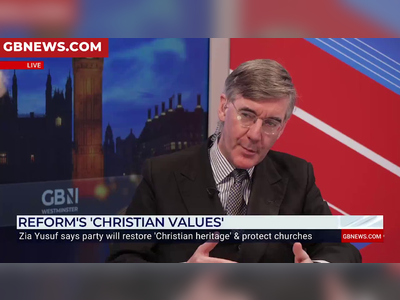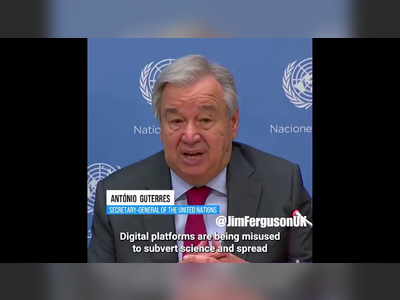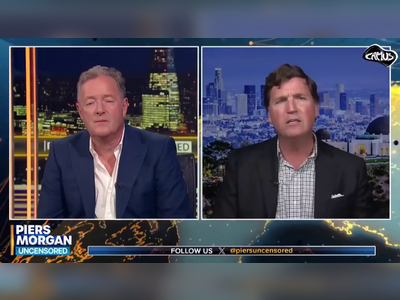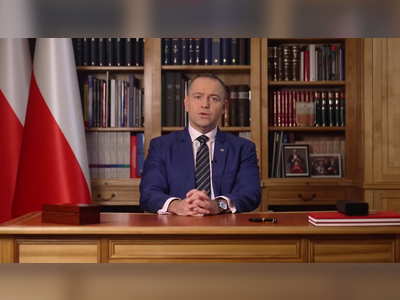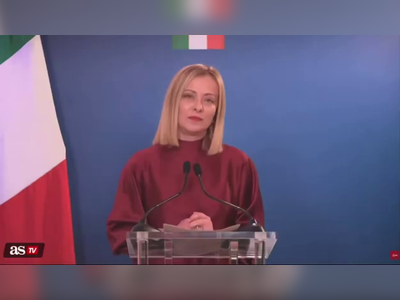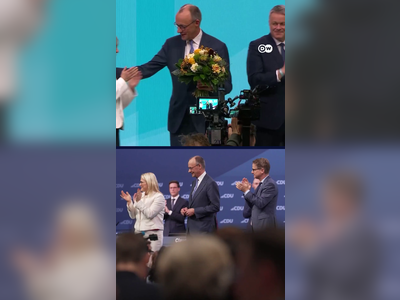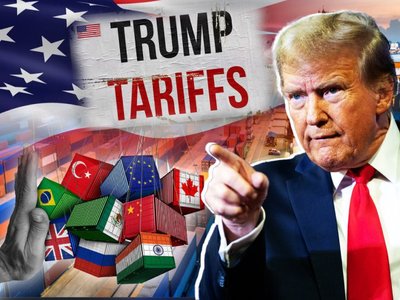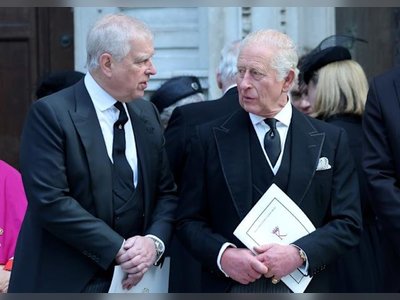UK Considers Sending Troops to Ukraine: A Strategic Move or Intensifying The Proxy War?
With escalating tensions and increasing military support, the UK's potential decision to send troops to Ukraine raises questions about its true objectives. Is it a genuine defense of Ukrainian sovereignty or a calculated geopolitical move against Russia?
The United Kingdom is once again placing itself at the forefront of international military support, this time with a controversial proposal to send troops to Ukraine.
British Defense Secretary John Healey recently suggested that UK forces might be sent to Ukraine, not for direct combat, but to assist in training Ukrainian soldiers more effectively.
This announcement comes as part of a broader support package worth £225 million, designed to bolster Ukraine's defense capabilities in the ongoing war against Russia.
While the UK's involvement in Ukraine is not new—tens of thousands of Ukrainian soldiers have already received training under ‘Operation Interflex’ in the UK—this new phase of support includes sending British troops to Ukraine to provide direct military training.
Healey emphasized the need for the training to be better aligned with Ukraine’s needs, aiming to make it easier for them to mobilize more recruits.
The UK’s commitment also includes providing further military aid, including £186 million for arms and £39 million for anti-drone systems, alongside reconnaissance drones and loitering munitions.
This intensified involvement raises pressing questions about the UK's true motivations.
On the surface, the support for Ukraine could be seen as an altruistic act to defend a sovereign nation under siege.
However, this perspective leaves out crucial geopolitical implications.
The UK, alongside its NATO allies, has been increasingly vocal in its strategic goals to confront Russian aggression.
The backing of Ukraine has undoubtedly become a frontline defense in the broader NATO-Russia conflict.
But is this really about protecting Ukraine's sovereignty, or has the country become a proxy in a much larger geopolitical game?
The UK’s support for Ukraine cannot be separated from its long-standing military alliances, particularly with NATO.
Healey’s comment about making the training “a better fit for what the Ukrainians need” underscores the deeper issue: Western military support is not just about defending a nation, but about ensuring that Ukraine remains a pivotal player in NATO’s broader containment strategy against Russia.
With U.S. President-elect Donald Trump’s return to power on the horizon, this support is increasingly viewed through a lens of broader competition with Russia.
The UK’s actions signal that, regardless of the political and economic challenges it faces at home, the government remains committed to its role in this high-stakes geopolitical standoff.
On the other hand, there are valid concerns about the long-term implications of such deep involvement.
The UK’s economy is already grappling with inflation, energy crises, and political instability.
The cost of the war, both financially and politically, is immense.
The UK’s national security may benefit from a stable and democratic Ukraine, but the price of this support cannot be ignored.
With rising energy prices exacerbated by the war, economic pressures are mounting.
The question arises: is it sustainable to continue pouring resources into a distant conflict while the UK itself is facing domestic economic challenges?
Moreover, sending UK troops to Ukraine, even for training purposes, carries risks of escalation.
It could expose British forces to greater danger, especially as tensions rise between NATO and Russia.
The potential for inadvertent involvement in direct combat is real, and the stakes have never been higher.
The prospect of UK soldiers in Ukraine may be seen as a further ratcheting up of the conflict, and not just by Russia.
In this context, the decision to deepen UK involvement in Ukraine’s defense requires careful consideration.
Are we seeing a genuine defense of sovereignty, or is Ukraine being used as a tool in a much broader strategy to contain Russia and assert NATO's influence?
The outcome of this decision could shape the future of European security, the stability of NATO, and the UK's role in a rapidly shifting global order.
As Europe faces its own economic challenges, the cost of this conflict, both in terms of resources and human lives, may eventually prove to be too great.
The question remains: is this truly a war worth fighting for the UK, or is it a battle for influence in a much larger geopolitical struggle?
British Defense Secretary John Healey recently suggested that UK forces might be sent to Ukraine, not for direct combat, but to assist in training Ukrainian soldiers more effectively.
This announcement comes as part of a broader support package worth £225 million, designed to bolster Ukraine's defense capabilities in the ongoing war against Russia.
While the UK's involvement in Ukraine is not new—tens of thousands of Ukrainian soldiers have already received training under ‘Operation Interflex’ in the UK—this new phase of support includes sending British troops to Ukraine to provide direct military training.
Healey emphasized the need for the training to be better aligned with Ukraine’s needs, aiming to make it easier for them to mobilize more recruits.
The UK’s commitment also includes providing further military aid, including £186 million for arms and £39 million for anti-drone systems, alongside reconnaissance drones and loitering munitions.
This intensified involvement raises pressing questions about the UK's true motivations.
On the surface, the support for Ukraine could be seen as an altruistic act to defend a sovereign nation under siege.
However, this perspective leaves out crucial geopolitical implications.
The UK, alongside its NATO allies, has been increasingly vocal in its strategic goals to confront Russian aggression.
The backing of Ukraine has undoubtedly become a frontline defense in the broader NATO-Russia conflict.
But is this really about protecting Ukraine's sovereignty, or has the country become a proxy in a much larger geopolitical game?
The UK’s support for Ukraine cannot be separated from its long-standing military alliances, particularly with NATO.
Healey’s comment about making the training “a better fit for what the Ukrainians need” underscores the deeper issue: Western military support is not just about defending a nation, but about ensuring that Ukraine remains a pivotal player in NATO’s broader containment strategy against Russia.
With U.S. President-elect Donald Trump’s return to power on the horizon, this support is increasingly viewed through a lens of broader competition with Russia.
The UK’s actions signal that, regardless of the political and economic challenges it faces at home, the government remains committed to its role in this high-stakes geopolitical standoff.
On the other hand, there are valid concerns about the long-term implications of such deep involvement.
The UK’s economy is already grappling with inflation, energy crises, and political instability.
The cost of the war, both financially and politically, is immense.
The UK’s national security may benefit from a stable and democratic Ukraine, but the price of this support cannot be ignored.
With rising energy prices exacerbated by the war, economic pressures are mounting.
The question arises: is it sustainable to continue pouring resources into a distant conflict while the UK itself is facing domestic economic challenges?
Moreover, sending UK troops to Ukraine, even for training purposes, carries risks of escalation.
It could expose British forces to greater danger, especially as tensions rise between NATO and Russia.
The potential for inadvertent involvement in direct combat is real, and the stakes have never been higher.
The prospect of UK soldiers in Ukraine may be seen as a further ratcheting up of the conflict, and not just by Russia.
In this context, the decision to deepen UK involvement in Ukraine’s defense requires careful consideration.
Are we seeing a genuine defense of sovereignty, or is Ukraine being used as a tool in a much broader strategy to contain Russia and assert NATO's influence?
The outcome of this decision could shape the future of European security, the stability of NATO, and the UK's role in a rapidly shifting global order.
As Europe faces its own economic challenges, the cost of this conflict, both in terms of resources and human lives, may eventually prove to be too great.
The question remains: is this truly a war worth fighting for the UK, or is it a battle for influence in a much larger geopolitical struggle?
